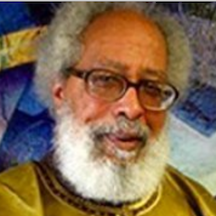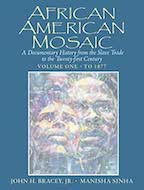 John H. Bracey Jr., a longtime faculty member in the W.E.B Du Bois Department of Afro-American Studies at the University of Massachusetts Amherst, died earlier this month at age 81.
John H. Bracey Jr., a longtime faculty member in the W.E.B Du Bois Department of Afro-American Studies at the University of Massachusetts Amherst, died earlier this month at age 81.
Born in Chicago, Illinois, and raised in Washington, D.C., Bracey attended both Howard University in Washington and Roosevelt University in Chicago, where he earned his bachelor’s degree in 1964. He did graduate work at Roosevelt University and Northwestern University, while active in the civil rights movement in Chicago.
Professor Bracey was a leading figure in the fields of African American studies and U.S. history. He joined the faculty at the University of Massachusetts in 1972 and helped create one of the nation’s first doctoral programs in African American studies. He also served in several roles including as chair of the department and co-director of the graduate certificate in African Diaspora Studies.
 Professor Bracey’s writing and research focused on African social and cultural history, radical ideologies and movements, and the history of African American women, while his recent interests focused on the interactions between African Americans and Native Americans, Afro-Latinx, and Jewish Americans.
Professor Bracey’s writing and research focused on African social and cultural history, radical ideologies and movements, and the history of African American women, while his recent interests focused on the interactions between African Americans and Native Americans, Afro-Latinx, and Jewish Americans.
He co-authored or co-edited numerous books including Strangers and Neighbors: Relations Between Blacks and Jews in the United States (University of Massachusetts Press, 1999) and the two-volume African American Mosaic: A Documentary History from the Slave Trade to the Twenty-First Century (Pearson, 2004 & 2020).
“Professor Bracey was a giant in his field. His contributions, mentorship, and advocacy for African American Studies/Black Studies were known throughout the world. He was a member of our department faculty for over 50 years,” said Yolanda Covington-Ward, chair of the W.E.B. Du Bois Department of Afro-American Studies. “Indeed, he was an institution within himself. His commitment to supporting and guiding our students was invaluable; he impacted the lives of so many students and faculty. Our department has lost one of its strongest pillars and we are grieving. We are still trying to come to terms with this tremendous loss.”

